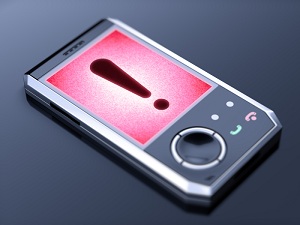 Smartphones, tablets and laptops are essential tools for signing agents and mobile Notaries to keep connected to clients and other business activities while on the road. But all too often we assume that the data stored on them is safe from prying eyes. That’s not the case, says the Privacy Rights Clearinghouse (PRC). Threats such as malware and spyware have become increasingly sophisticated, and many people believe their mobile devices are immune from the kinds of threats bombarding our PCs and laptops.
Smartphones, tablets and laptops are essential tools for signing agents and mobile Notaries to keep connected to clients and other business activities while on the road. But all too often we assume that the data stored on them is safe from prying eyes. That’s not the case, says the Privacy Rights Clearinghouse (PRC). Threats such as malware and spyware have become increasingly sophisticated, and many people believe their mobile devices are immune from the kinds of threats bombarding our PCs and laptops.
The nationally recognized consumer protection organization offers the following tips for protecting your mobile devices:
Password-protect your mobile devices, and configure them to lock after a set period of time. This measure is akin to one of the most essential duties of every notary: to properly identify every signer. Make sure your mobile devices properly identify you every time you need to use them. At a minimum, you should use separate strong passwords for entry into your device and for every application you use. Where possible, you should use a second authentication measure, such as a thumbprint or security question. These measures could buy you some time to remotely wipe the device if it is lost or stolen. This also makes it a little more difficult for someone to physically install spyware.
Be very cautious when using public Wi-Fi networks. While public Wi-Fi is very convenient, anything you do on an open network is at risk to be accessed by other network users. Don’t use public Wi-Fi for anything that involves sensitive data (such as sending or receiving signer information for a loan document signing) without setting up protections to encrypt your communications. It’s also not a good idea to log in using your passwords for personal accounts and files while on a public Wi-Fi network — your login information may be vulnerable to other users.
Turn off Bluetooth when you aren’t using it. If your devices are always Bluetooth-discoverable, you expose yourself to the added risk of allowing malicious actors access to your device and communications.
Only use trusted security software and other applications. Doing a little reading can save you the hassle of downloading an app that puts malware on your device. What are people saying about the app? Who is the developer? How many times has it been downloaded?
Install software updates (this includes your apps). When vulnerabilities are discovered, the developer should issue an update to fix it. If you don’t update the software, you continue to be vulnerable.
Error on the side of caution. When someone messages or emails you a link or attachment, even if you recognize the email address, don’t blindly click or download. The same is true with shortened links you see in social media. If you are questioning whether something is a scam, the Federal Trade Commission has comprehensive resources.
These few tips will help keep your mobile business — and your customers’ sensitive information — safe.
David Thun is an Associate Editor at the National Notary Association.